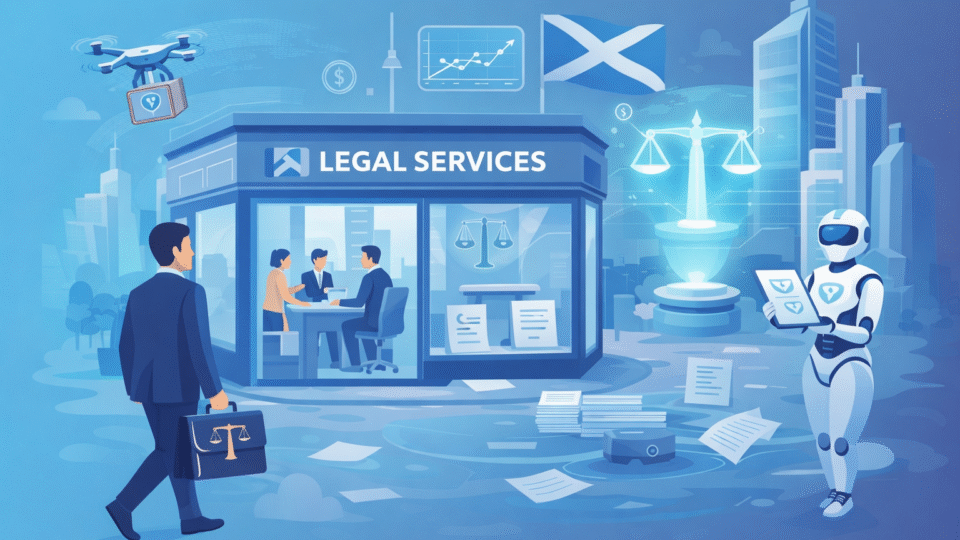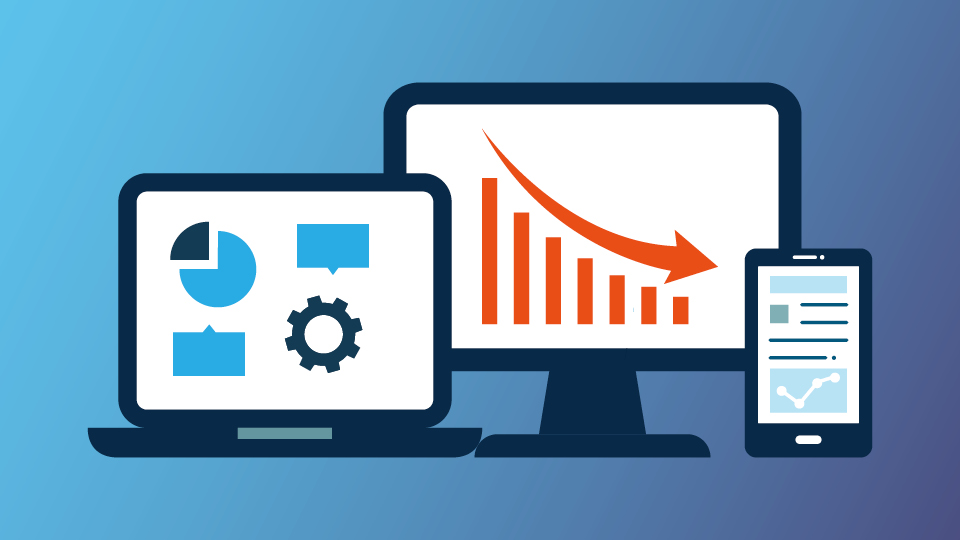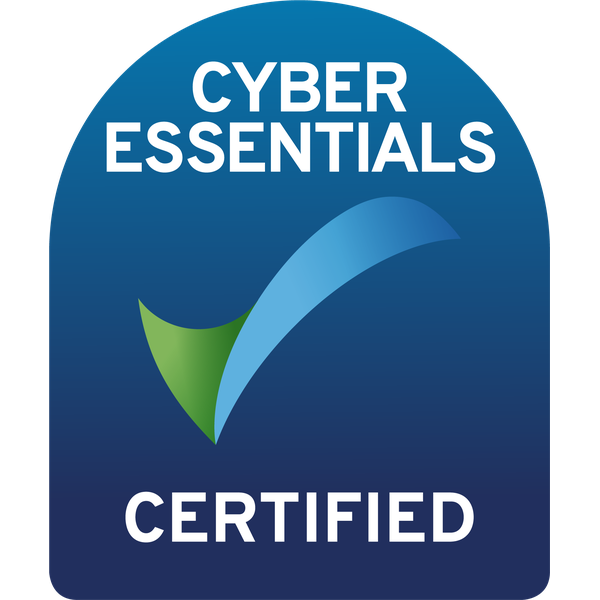Written by:

Grant Yuill
Head of Marketing & Customer Engagement
According to Gartner, law firms want to spend over 200% more on legal technology between 2021 and 2025. This is not surprising considering that legal firms have traditionally been slow to adopt technology, and there is now a great need to catch up by using advanced law practice management systems.
For years, legal firms have limited their ability to save time and money by trapping them in repetitious manual processes such as documentation, billing, and accounting, which can now be improved through law practice management systems. While legal practice management systems that automate many of a law firm’s normal, day-to-day duties have been available for some time, they have received little interest from legal professionals. The high pricing of the software, as well as the generic, all-too-familiar lawyer’s distrust of all things tech, hindered further technology adoption.
Cloud-based legal practice management software helps law firms address both of these issues while also providing innovative and cost-effective solutions to a variety of additional concerns that law firms encounter.
What exactly is cloud-based legal practice management software for law firms?
Cloud-based legal practice management software for law firms provides end-to-end solutions for all of a law firm’s needs without the requirement of the installation and maintenance of an expensive server on the firm’s premises. Users can access the cloud-based software through their web browsers even when they are not on the firm’s premises, enabling them to be productive while on the go.
An effective cloud-based law practice management software provides the following services:
Case Management
Case management contains the numerous processes involved in storing all case documents in one location, making them conveniently accessible when needed, and sharing them with other stakeholders in the case.
Automating and Managing Legal Documents
Cloud-based legal practice management software includes tools that allow lawyers to use templates to create contracts, wills, and other crucial documents for their clients. This saves lawyers from the time-consuming task of creating documents from scratch.
Billing and Invoicing
Billing and invoicing are one of the potential features of cloud-based legal practice management software for law firms. Firms can prepare invoices and deliver them to clients, who can subsequently pay online, by leveraging the key features of legal e billing software.
Managing Contacts
Allows law firms to manage their connections by filtering and labelling them into categories such as prospects, referrals, witnesses, and so forth. In addition to providing potential lead management it also allows for easy searching and indexing of contacts, examination of conversation history with a certain contact, and other relevant capabilities.
Scheduling
Law firms may quickly mark their calendars, and create notifications for important dates and hearings, client meetings, deadlines, scheduling appointments, and other tasks.
Accounting Services
Cloud-based legal accounting software allows law firms to comply with trust accounting rules while also integrating with third-party accounting services.
Task Management System
Task management assists teams in improving efficiency by assigning to-do lists, measuring progress, managing workload, enabling increased collaboration across tasks, and so on.
Tracking Expenses
An excellent cloud-based legal practice software allows law firms to track their spending and time spent on various tasks over a specific period of time. It also allows for detailed analysis of each employee’s productivity, such as filtering productivity by billable and non-billable hours to determine how much time was spent on a project or matter, as well as more high-level firm metrics such as realisation rates, which measure a firm’s profitability based on the frequency of fully paid bills.
Insights and Analytics
Finally, effective legal practice management software integrates reports from the previous processes to provide extensive analytics and insights for strategic level planning, resulting in better corporate decision-making and the identification of opportunities for improvement in all practice areas.
6 Reasons Why Legal Teams Should Switch to Cloud Legal Practice Management Software
Legal practice management software for law firms is important because it enhances productivity and efficiency in a law firm’s everyday operations, improves communication between partners and clients, and, most importantly, produces measurable, visible revenue growth.
In fact, the Law Society of England promotes cloud-based legal practice management software as an especially useful investment for small and medium-sized law offices. Small, scrappy law firms that use cloud-based legal tech may be able to compete on the same level with larger firms despite only having a fraction of the latter’s resources.
These are six reasons why legal teams should consider transitioning to cloud-based legal practice management software:
#1. Increase in Revenue
In simple terms, cloud-based legal practice management software for law firms generates cash for its clients. CaseLoad increases a law firm’s revenue by automating processes, correctly recording billable hours, and enhancing task management, resulting in increased efficiency and productivity. It improves customer service by providing cloud-based access, secure client portals, and better communication capabilities. Cost reductions are achieved through lower IT expenditures, more flexible subscription options, and automatic updates, which can benefit through document management.
#2. Availability
Cloud-based law practice management software enables you to access your data from anywhere using only an internet connection by entering into your account on any device, including desktop computers, laptops, and mobile devices. This is useful for both high-flying lawyers travelling across countries and entire firms of any size. It also enables the formation of distributed teams, offering law firms more flexibility in their hiring plans by allowing firms to hire the best legal talent without regard for their physical location. In other words, a lean, mean, distributed workforce ready for tomorrow’s remote/hybrid workplace.
#3. Scalability
The cloud is a flexible and adaptable environment in which firms can scale up or down their resources as needed. You can scale up or down based on your current demands and budget, without purchasing additional hardware or software licences. This implies firms can now focus on what is most important to them which is serving clients.
#4. Enhanced Security
Your data is safer in the cloud since it is stored in a secure data centre equipped with cutting-edge technology, firewalls, and intrusion detection software. Cloud storage may be more secure than on-premise servers. This is because the cloud implements strict user and data separation. On the other hand, with on-premise servers, there is always the possibility that virus or hacker code would gain access to your servers via unprotected user computers that are directly connected to the same server where all of your data is stored.
#5. Improved integration
The cloud is designed for integration. Cloud technology enables you to combine your law practice management software with any other applications you may use, such as ERP or CRM systems. With an on-premise, server-based system, this may not always be possible.
#6. Lower cost
Cloud-based legal practice management software for law firms is usually less expensive than traditional desktop software because no hardware or software licences are required upfront. It also saves legal companies money on storage and electricity, which are necessary for maintaining and operating huge server-based systems on their own premises. This is especially beneficial for small businesses that do not have the funds to invest in costly hardware. When you switch to cloud-based legal practice management software, you can save a lot of money over time since it eliminates the need for the firm to pay for constant hardware and software updates. Instead, the cloud law practice management software’s monthly prices are all-inclusive in order to maintain the software working properly.
Traditional Servers vs. Cloud Legal Practice Management Software
Prior to cloud-based legal practice management software, on-premise server-based systems required the laborious installation of server-based software on the premises of a law firm. In order to access the legal practice management software, the server was connected to all of the firm’s systems. While this system had numerous disadvantages, numerous law firms continued to use it solely as a matter of habit.
The Covid-19 pandemic, however, upended this system, as it altered so much else in the world as we knew it. Mobility and remote work become essential for starting a successful business, rather than oddities in a world of chambers and courthouses. The following sections compare the various characteristics of cloud-based legal practice management software to traditional on-premise legal software.
| On-premise Server-based Legal Practice Management Software | Cloud-based Legal Practice Management Software |
| Cost | Expenses include: Running / Maintenance Expenses Electricity Expenses Upgrades Floor Space | Law firms just need to pay monthly or annual subscription fees, which can often be metred according to use of the cloud-based software. |
| Uptime | Uptime is influenced by local factors like as power outages, fires, and floods. | Most service providers promise service level agreements (SLAs) with a guaranteed uptime of above 99%. |
| Security | A lot of the same security risks as cloud-based systems exist, but the company is in charge of installing security measures such as two-factor authentication or separate user access levels. A single breach in an on-premise solution can quickly propagate throughout a company’s whole technology stack. | Security features such as two-factor authentication (2FA) for logins and different user access levels are often included. If there is a security breach, each cloud-based application is often stored individually, reducing the likelihood that a company’s entire IT stack will be compromised, thus helping legal professionals maintain data integrity. |
| Tech Support | Firms can either hire their own in-house IT staff or collaborate with partners to provide IT support. | Cloud-based service providers usually offer standard assistance, as well as various free self-help options. |
| Accessibility | Because data and resources are stored locally, remote access is not always available. | Authorised personnel can access data and resources from anywhere. |
Factors to Consider When Choosing the Right Cloud-Based Legal Practice Management Software
We have witnessed the advantages of cloud-based legal practice management software over traditional server-based systems. However, before you begin looking for the ideal web-based legal practice management software for your firm, you must first understand how to choose the best solution from among the wide range of options available. Here are some essential criteria you can use to narrow down your shortlist:
Business Use
A legal practice management software is only effective if it delivers on its promise of offering end-to-end solutions for your business demands, including matter management and document management. As a result, the first step in finding the right legal practice management software is to identify your particular company’s needs and determine how the software might help you optimise them.
From a strategic perspective, the functions of any good legal practice management software can be divided into four categories:
- Financial management involves responsibilities including billing, invoicing, and accounting.
- Client management includes services such as case management, document automation, and more.
- Business Development provides functions for building your business, such as discovering and following up with possible customers.
- Risk management includes functions such as protecting customer information, complying with data privacy and accounting requirements, preventing conflicts of interest, etc.
Conduct an extensive review of how the software addresses your company’s requirements in each of these four categories.
Migrate with ease
A new legal practice management software means transitioning your entire firm to a new platform. This covers your current data, workflows, procedures, and systems.
Furthermore, all of this data and procedures are most likely divided or disseminated across your organisation’s numerous formats and sites. The migration procedure is essentially divided into four steps:
- Migrating all data from existing systems and procedures
- Ensure that it gets preserved and not lost throughout the migration process
- Adding this data and its accompanying processes into the new system.
- Finally, ensure that once transferred, the new systems are more efficient than the ones they replaced.
This final stage is essential for understanding because the entire objective of transferring to new software is to increase efficiency and improve workflow.
These issues must be addressed when choosing whether to update or migrate because the procedure can be costly, time-consuming, complicated, and, in some situations, completely impracticable. Before purchasing a new system, sit down with your vendor and ask them to show three things:
- How the migration to the new system will occur with the least cost and time investment
- How the transition to the new system will increase efficiency and workflows
- How they achieved this in the past with other companies. In other words, inquire about their prior expertise, if any, with custom data and process migration for other law firms.
Pricing
A comprehensive end-to-end law practice management software will not be cheap. Sure, a cloud-based solution is nearly always less expensive than an on-premise server-based solution, but you are still looking at establishing a complicated solution that will necessitate a substantial investment. Given this, you’ll need to compare it to at least two cost metrics:
ROI (Return On Investments)
Calculate the expected return on investment (RsOI). Evaluate each vendor you have shortlisted based on the pricing they charged vs the gains they promised, especially if the gains include functionalities like document management and case management software. You’ll also want to know how long it will take to recover your investment and start producing a profit. Ask yourself how long it will take for you to get a return on your investment. Is there a way to speed up this process?
TCO (Total Cost of Ownership)
Consider the total cost of ownership (TCO) for each solution. The term refers to the continuous costs of using any specific technology. For example, you will have to pay for your vendor’s maintenance and support services every year, even if there are no adjustments or updates required at the time. If you hire new staff who will use this programme, you may need to invest in additional training and onboarding to help them use the practice management solution effectively.
Integration with Existing Technology
You must consider how a cloud-based legal practice management software for legal firms will integrate with your firm’s current technology, as well as what other third-party applications it will interact with.
If you have an accounting system, be sure your cloud-based legal practice management software can connect with it. If your accounting system is not cloud-based or does not allow for interaction with other programmes, you will need to find another way to manage client billing and invoicing.
You should also evaluate how easily your new cloud-based legal practice management software can be integrated with other third-party programmes required to run a successful law practice. To help speed the contract signing process, many companies employ a secure digital signature platform like DocuSign. If you use this technology, it’s essential that it integrates with your new law office administration software and other practice management solutions.
Top Tips for Lawyers When Choosing Cloud-Based Law Practice Management Software
- Review each platform using objective facts and data, but also trust your gut judgement. The legal practice management software you choose will, in some ways, be the place where your law business will live and grow, and if you don’t feel entirely comfortable using it, it’s not the greatest fit.
- Request a demo from each vendor before making a decision. Never make a purchase based only on pricing or rumours, just as you would not buy a car without first testing it out.
- Ensure that the vendor you choose has demonstrated expertise in implementing solutions similar to your own.
Conclusion
Cloud-based legal practice management software enables law firms to better manage their cases, workflows, billings, and document management. Whether you are a small family practice or a large, well-established organisation with various offices, the cloud provides numerous benefits at a lower cost than on-premise server-based solutions.
While end-to-end practice management software covers the majority of a law firm’s operations, certain essential components necessitate the use of extra software solutions to increase the efficiencies of your firm’s systems. One area that legal practice management software does not address in-app is the initial scoping and pricing of client projects. Alternative fee arrangements (AFAs) are gaining popularity as an alternative to the standard billable hour pricing model, but most businesses lack a system for creating, developing, and managing their AFA pricing strategy. Contact our team to see how Denovo can help revolutionise your approach to pricing client work, resulting in increased revenue while developing stronger alignment with your clients.















